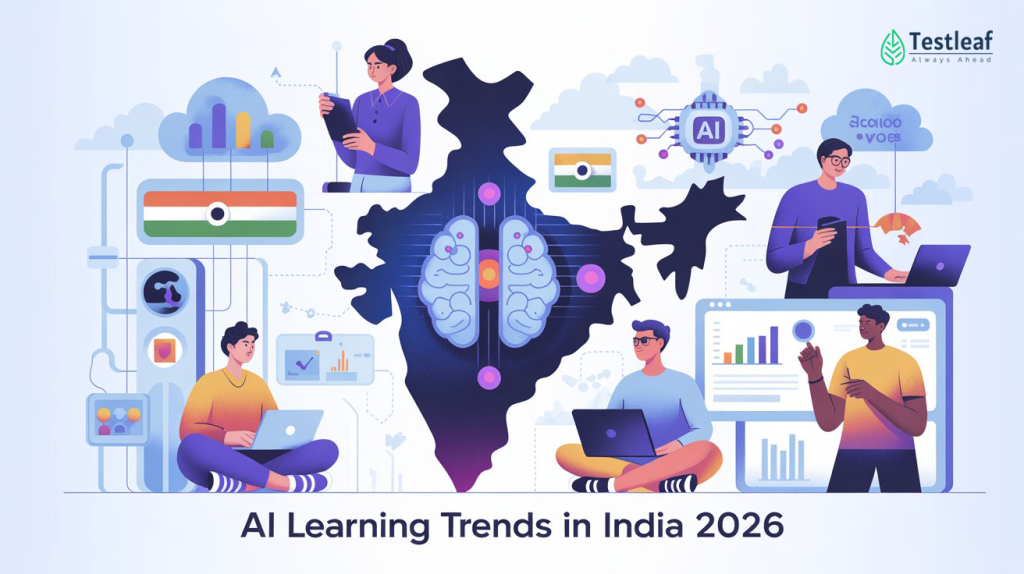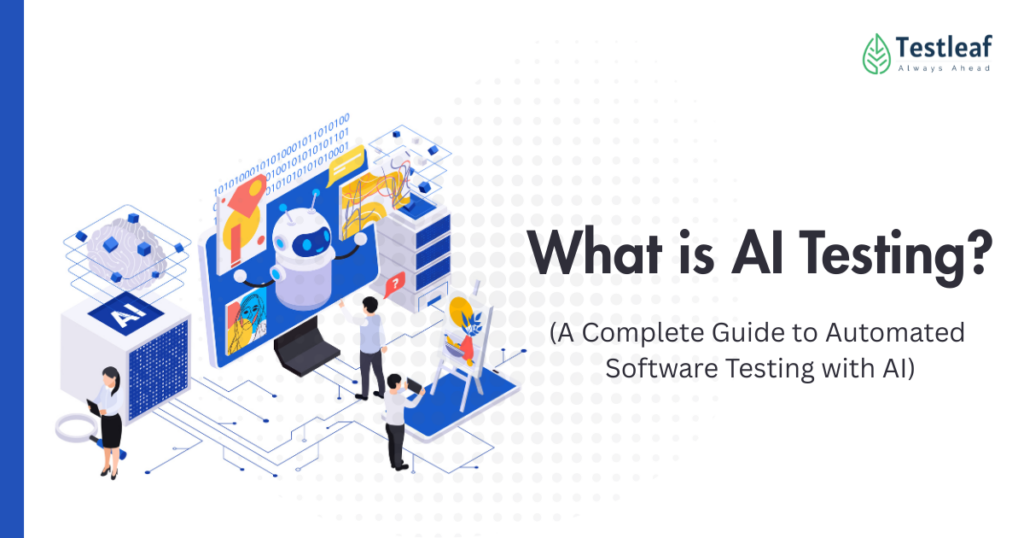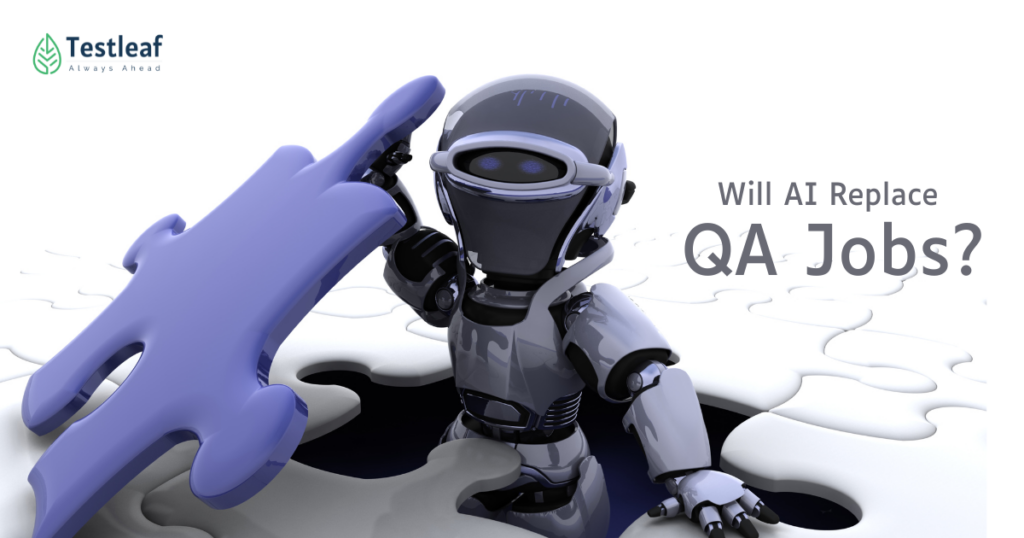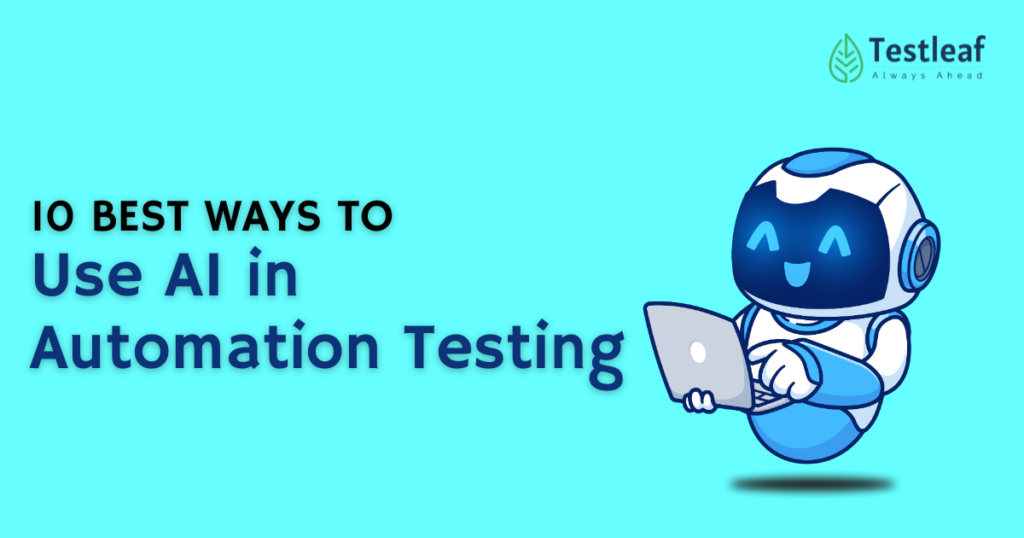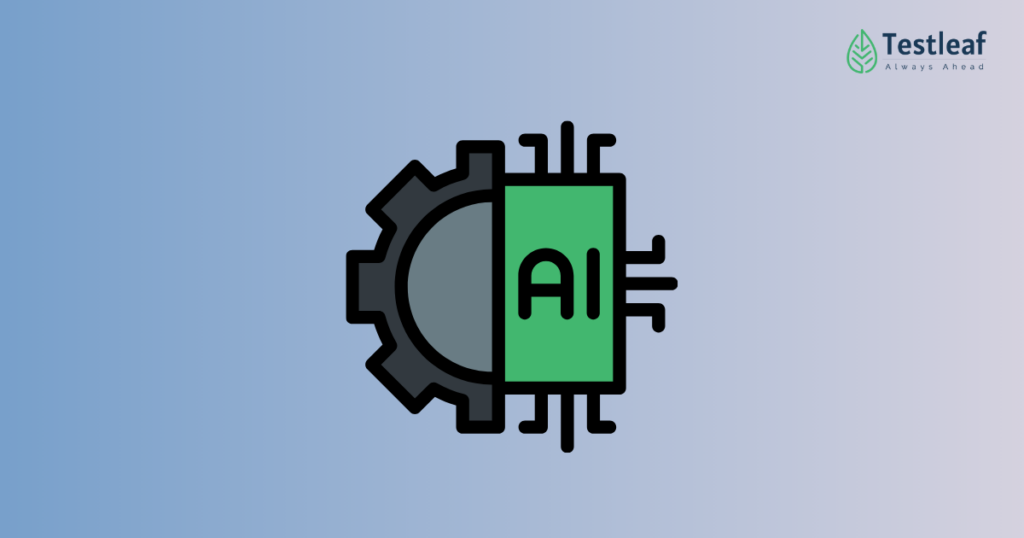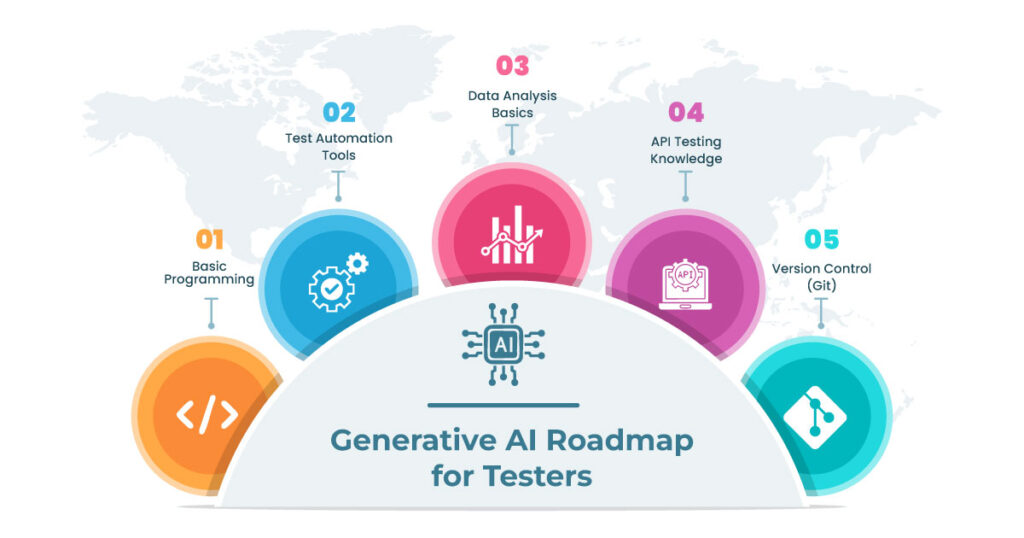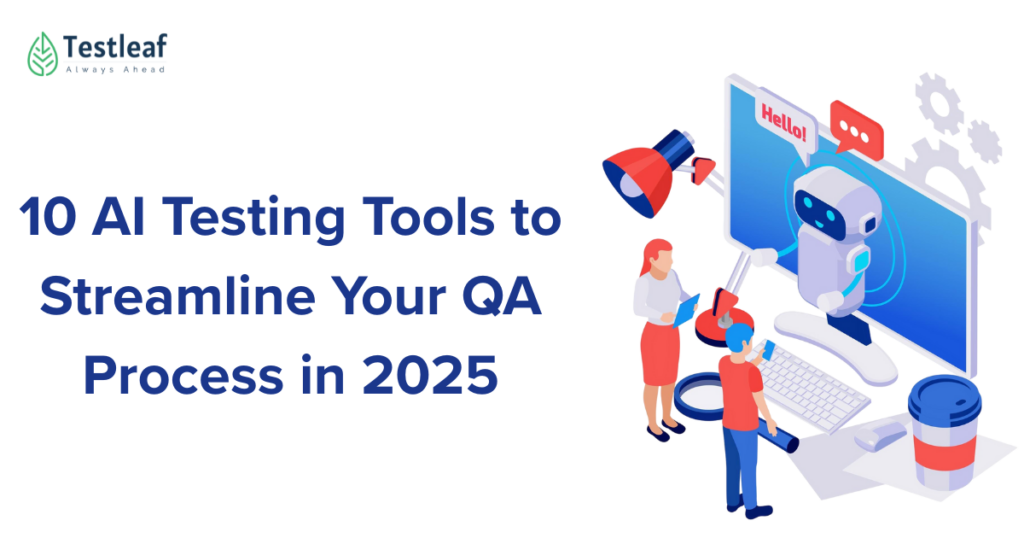Artificial Intelligence (AI) is no longer a futuristic concept — it’s the new foundation of how industries operate, innovate, and compete. Across India, the rise of AI-driven education, skill-based learning, and tech upskilling is reshaping the way professionals prepare for tomorrow. According to Testleaf’s User Persona Report 2026, learners in India are not just curious about AI — they’re actively seeking ways to integrate it into real-world applications, especially in domains like AI in software testing and AI in test automation.
Let’s dive into the major learning trends, insights, and behavioral patterns that define how India is embracing AI education in 2026.
1. The AI Learning Boom: A Skill Revolution
India is witnessing a powerful wave of AI learning adoption. The report highlights that over 68% of learners between 22–35 years are pursuing AI-related courses, marking a 40% jump compared to 2024. The demand is fueled by professionals in tech, testing, data analytics, and software engineering — all looking to future-proof their careers.
Interestingly, this surge is not limited to fresh graduates. Mid-career professionals from traditional QA and development backgrounds are increasingly shifting to roles where AI in software testing is a core requirement. With companies demanding smarter, faster, and data-driven quality assurance, AI-powered tools are becoming an industry standard — and learners are adapting rapidly.
Other Recommended Reads: automation testing interview questions
2. Personalized Learning Pathways Take Center Stage
One of the strongest trends identified in the report is the demand for personalized, career-focused learning paths. Learners no longer prefer one-size-fits-all online courses. Instead, they seek AI-guided learning journeys that adapt to their skill level, pace, and professional goals.
Testleaf’s data shows that students are particularly drawn to programs offering hands-on projects, live mentorship, and capstone case studies aligned with AI applications in testing. For instance, courses integrating AI in test automation allow learners to build and deploy intelligent scripts that analyze, predict, and self-heal test cases — a skill that directly translates into job readiness.
AI is not just a subject anymore; it’s a skill enhancer that transforms how people learn testing itself.
3. Rise of Practical AI in Software Testing Education
Gone are the days when testing was about repetitive scripts and manual validations. The report reveals a sharp increase in learners focusing on AI in software testing as a specialized career track.
AI-driven testing tools such as Testim, Mabl, and Testron.ai are reshaping automation frameworks with self-learning capabilities. As per the survey, 72% of QA learners believe AI testing tools improve efficiency by over 60%, while 58% say AI reduces maintenance time for automation scripts.
This shift highlights a deeper transformation — AI is not replacing testers, it’s upgrading them. Testers who once wrote step-by-step scripts are now training models to predict failures, identify anomalies, and automatically generate test scenarios.
4. Career Motivation: From Job Security to Future Confidence
Another key takeaway from Testleaf’s report is the changing motivation behind learning AI. In earlier years, most professionals enrolled in AI courses for job security or salary hikes. But in 2026, the motivation has evolved toward career adaptability and confidence.
Learners want to stay relevant in an unpredictable job market. AI skills — especially in test automation — provide that edge. As industries automate faster than ever, being AI-aware means not just keeping your job but creating new ones that didn’t exist before.
Interestingly, over 54% of learners say they enrolled in AI in software testing courses because they wanted to “work smarter, not harder.” This mindset shift is a defining feature of India’s new-age learners.
5. The Role of Real-World Use Cases and Agentic Testing
Testleaf’s User Persona Report emphasizes that the most successful learning programs combine AI concepts with real-world use cases. Learners find it easier to understand AI when they apply it directly to testing workflows — like visual validation, test impact analysis, and predictive bug detection.
A growing number of learners are also exploring Agentic Testing — where AI agents autonomously perform testing actions, adapt test logic, and communicate findings. Integrating agent-based systems into automation frameworks is quickly becoming the next milestone in test education, showing how AI can move from assisting testers to acting like one.
6. Shift Toward Continuous and Community-Driven Learning
The 2026 learner isn’t studying in isolation. The report notes a rise in learning communities, hackathons, and AI testing challenges — where peer collaboration accelerates growth. Platforms like Testleaf’s Gen AI learning network are enabling students to share projects, discuss innovations, and gain industry exposure.
This culture of “learning together” has made AI education more interactive, engaging, and career-aligned than ever before.
Don’t Miss Out: api automation interview questions
7. The Road Ahead: Building an AI-First Workforce
As India positions itself as a global hub for technology talent, AI in test automation and AI in software testing are emerging as key drivers of future employability. The Testleaf report concludes that professionals who combine testing expertise with AI literacy will lead the next generation of intelligent software development.
Organizations are already prioritizing candidates who understand how to apply AI in QA workflows — not just theoretically, but through practical, measurable results.
Conclusion
The AI Learning Trends in India 2026 reveal a clear truth — the future belongs to those who can blend human logic with machine intelligence. Professionals who master AI in software testing and AI in test automation aren’t just improving their skill sets; they’re future-proofing their careers in an AI-driven world.
To stay ahead in this evolving landscape, enhancing your skills is essential — especially by learning how AI in testing can redefine the way quality engineering works. The learners who embrace this shift today will become the innovators shaping India’s tech future tomorrow.
FAQs
1. What are the top AI learning trends in India for 2026?
The major trends include AI-driven personalized learning paths, career-focused skill programs, and increased adoption of AI in software testing and automation.
2. How is AI changing software testing in India?
AI tools are transforming testing by predicting failures, automating test generation, and enabling faster maintenance through intelligent script healing.
3. Why is AI in test automation a top skill for 2026?
Because companies now prefer testers who can integrate AI models into automation frameworks, making testing faster, smarter, and more reliable.
4. Who benefits the most from AI learning programs in India?
Mid-career professionals in QA, development, and data analytics benefit the most as AI helps them upgrade their skills and future-proof their careers.
5. What is Agentic Testing and why is it trending?
Agentic Testing uses AI agents to perform autonomous testing actions, adapt logic, and report bugs — redefining how modern testing works.
We Also Provide Training In:
- Advanced Selenium Training
- Playwright Training
- Gen AI Training
- AWS Training
- REST API Training
- Full Stack Training
- Appium Training
- DevOps Training
- JMeter Performance Training
Author’s Bio:

Content Writer at Testleaf, specializing in SEO-driven content for test automation, software development, and cybersecurity. I turn complex technical topics into clear, engaging stories that educate, inspire, and drive digital transformation.
Ezhirkadhir Raja
Content Writer – Testleaf
